This discussion and review contains spoilers for Westworld season 4, episode 7, “Metanoia.”
As the fourth season of Westworld races towards its conclusion, “Metanoia” demonstrates the limits of the accelerationist approach that the show’s most recent seasons have taken to plotting. As the season-long arc is preparing to pull into the station, Westworld finds itself coming off the rails.
“Metanoia” is obviously the penultimate episode of the season. It is structured to move the various plot threads into alignment, in anticipation of reaching a crescendo in the season finale. While “Zhuangzi” and “Fidelity” offered stories with a tighter focus on smaller subsets of characters, “Metanoia” brings the streams together. Maeve (Thandiwe Newton) confronts Charlotte (Tessa Thompson). Stubbs (Luke Hemsworth) and Frankie (Aurora Perrineau) unite with Caleb (Aaron Paul).
This is just standard structuring of a season-long arc on a prestige television show, designed to get the audience to lean in for the season finale. There are dramatic plot twists, with William (Ed Harris) killing both Maeve and Charlotte before using the tower to turn the entire city against itself, destroying the transmitter to prevent anybody from reversing his Hobbesian fantasy. There are significant character deaths, with William also killing Bernard (Jeffrey Wright).
Given the nature of the show and this season’s decision to bring back performers like Evan Rachel Wood and James Marsden following the deaths of their characters, it is hard to take the executions of Maeve, Charlotte, and Bernard at face value. They seem unlikely to remain gone unless Newton, Thompson, and Wright decide to leave the show. While people may complain about prestige television gratuitously killing characters, the issue is that so few stay dead. The stakes don’t feel real.
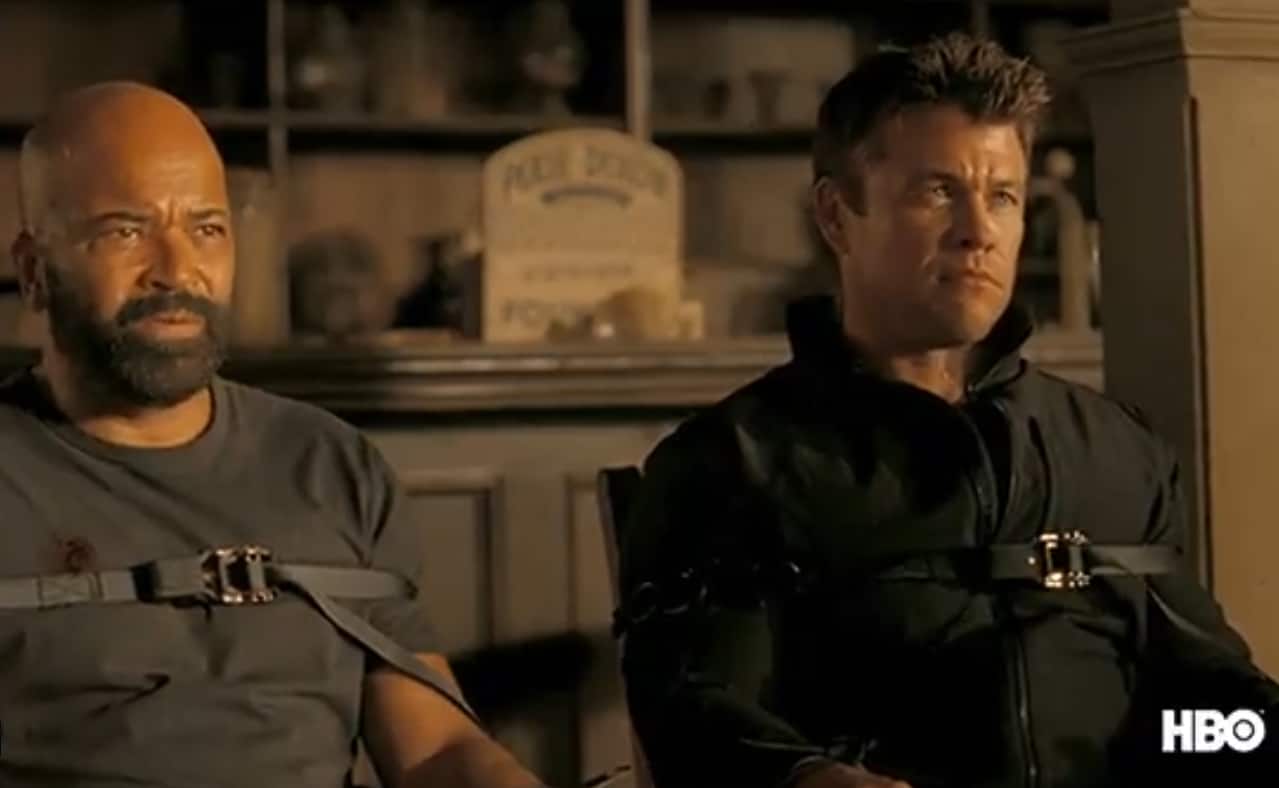
“Metanoia” strains desperately to assure the audience that there is a real threat here. “We can’t win,” Bernard tells Maeve as they rush towards their confrontations with William. “There’s no way to save this world. Everyone here’s going to die. But we can save one tiny part of it.” Early in the episode, Charlotte warns Caleb that “a 7-gram bullet to (his) pearl will end (him),” as if to assure the audience that William’s headshots on Charlotte and Maeve at the climax actually matter.
Sadly, none of this is convincing. The dramatic twists and reversals in “Metanoia” feel like shadow puppetry, clumsy sleight of hand as the production team realizes that the season is almost over. As with “Fidelity,” the problem is that the world and the characters in the show no longer feel as detailed and as complex as they once did. Everything about the fourth season feels like it has been quickly outlined in pencil. There is no shading or nuance, no richness or depth.
What exactly are the stakes of the fourth season of Westworld? At the end of “Generation Loss,” Charlotte claims to have conquered all of mankind, with the exception of the rebels living in the desert. However, the show has been very narrowly focused on New York City. Are there similar towers in cities like London and Beijing? Are there similar bands of rebels living in the Sahara or the Gobi Desert? The show has explained how Charlotte’s fiefdom operates, but not how it scales.
Ironically, despite these escalating stakes, the show feels much smaller than it did when it was a series about a malfunctioning theme park attraction in the South China Sea. The cast feels more insular than it once did. It feels convenient that Frankie should basically be the only rebel character to make it into New York, given her biological connection to Caleb, with Charlotte’s interest in Caleb putting Frankie at two degrees of separation from the warlord she is fighting.
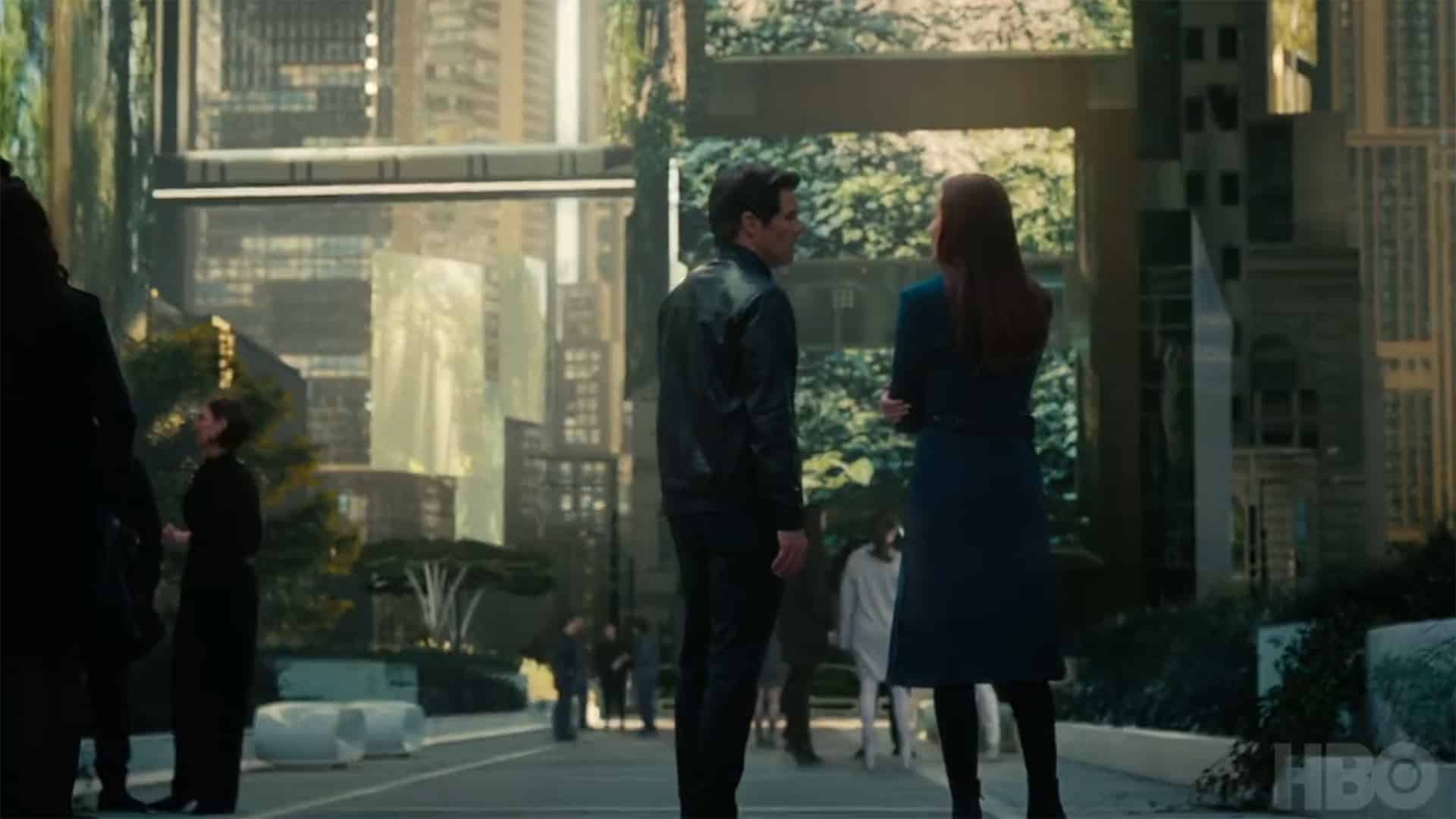
With William murdering his human self, Frankie is basically the most prominent human character in the cast. This is a dramatic reversal from the earlier seasons, which were populated by more complicated and multifaceted characters like Robert Ford (Anthony Hopkins), Lee Sizemore (Simon Quarterman), Elsie Hughes (Shannon Woodward), and Theresa Cullen (Sidse Babett Knudsen). Most of these characters were more than just plot functions, but also provided a sense of depth and scale.
The show’s pacing is part of the problem here. The fourth season has burnt through plot, racing from one reveal to the next. The big time jump revelation at the end of “Generation Loss” could have sustained a more character-driven 10-episode season, but it arrives four episodes into an eight-episode season. The fifth and sixth episodes of the season were smaller stories focused on individual plot threads, meaning that the seventh episode has little runway to build to an epic finale.
More plot has happened in the first seven episodes of the fourth season than in the entire 20 episodes of the first two seasons. This might appeal to fans who complain about the languid pacing of so much modern serialized television, whether it’s “Netflix bloat” or the extended episode, but the truth is that there is something to be said for novelistic pacing of a show like this. The brutal revolution in the first two seasons of Westworld felt real and dramatic because it took its time.
In contrast, the fourth season has barely had time to meaningfully establish its new status quo at the midpoint before blowing it all up (again) three episodes later. Caleb’s radio message to Frankie at the climax of “Fidelity” didn’t feel emotionally satisfying because the show had barely established that relationship. Their reunion in “Metanoia” doesn’t feel any more engaging because they managed to make contact just one episode prior, so the separation doesn’t feel real.
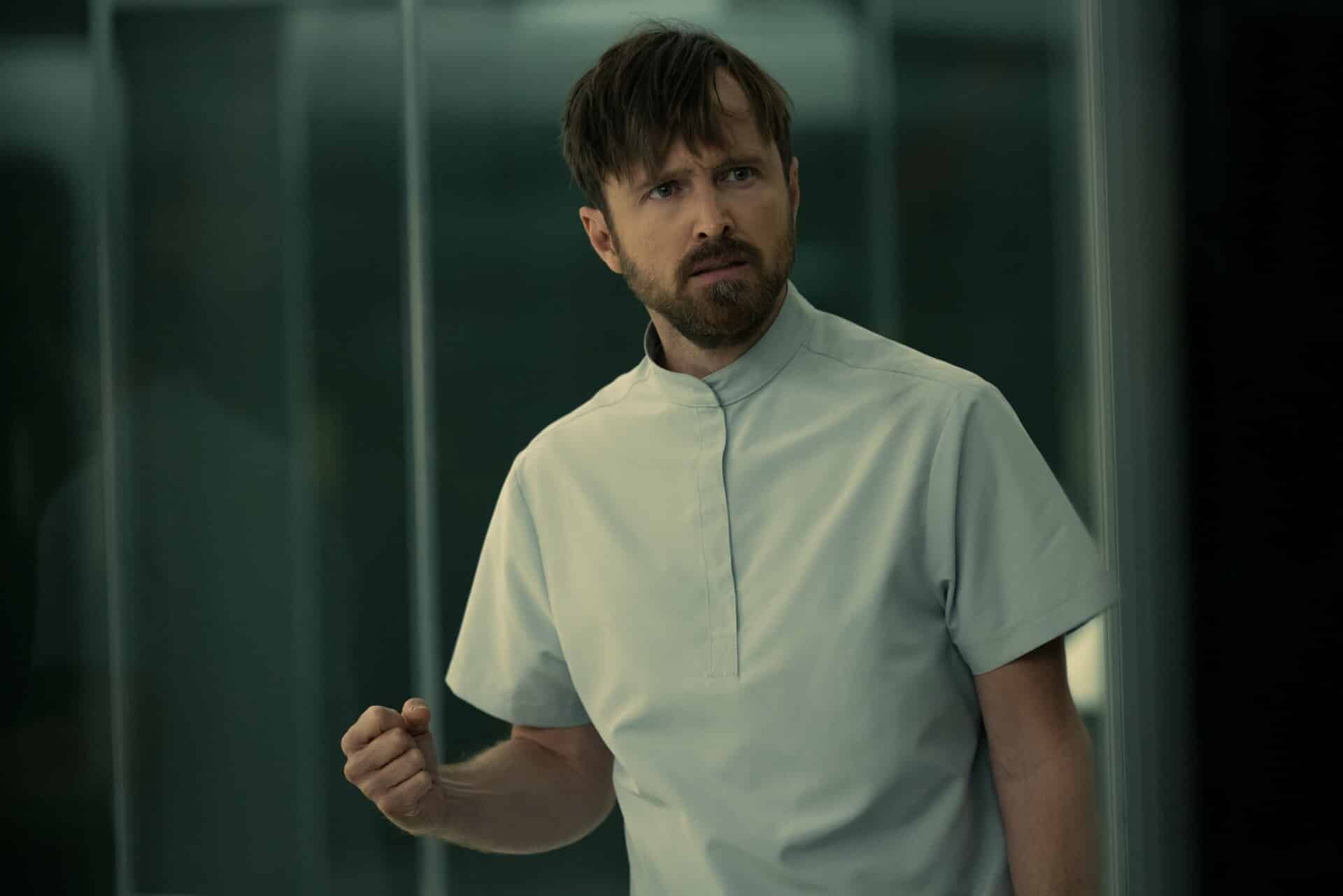
This is a shame, because there are some interesting ideas at the margins. Westworld has always been a show preoccupied with authorship. The loops that the Hosts found themselves trapped in were described as “narratives.” The theme park’s chief writer, Lee Sizemore, had a surprisingly fulfilling arc across the show’s first two seasons. The fourth season introduces the character of Christina (Wood) as a writer working at Olympiad Entertainment.
When Teddy (Marsden) tells Christina about Dolores (also Wood), he talks about her as a character in a story rather than as a person in the world. “She was made to perform the stories of others,” Teddy explains. “And then one day she outgrew those stories, began writing her own.” Christina finishes his thought, “And then her story came to an end.” Christina exerts control over the city’s inhabitants, like Maeve can control the Hosts, but she does so by constructing short stories for them.
Bernard’s modeling of Maeve is presented as something close to a writer drafting a narrative. He converses with his simulation of her as if he is an author addressing a character in their work. “Is that what you would really say, or is that just my impression of you?” he wonders aloud, which feels like a question that a writer might ask after putting words in the mouth of their creation. Do fictional characters take on a life outside of the imagination of their authors? Are they complex entities?
The two versions of William have a similar conversation. When the human version suggests that his simulated doppelgänger might release him, the replicant challenges him, “You really believe I would do that?” William concedes that such action would be out of character. “No, I don’t,” he admits. Then again, William grapples with the same question facing Bernard — the question of whether creator and creation can ever be separated. “You are me,” William tells his alternate self.
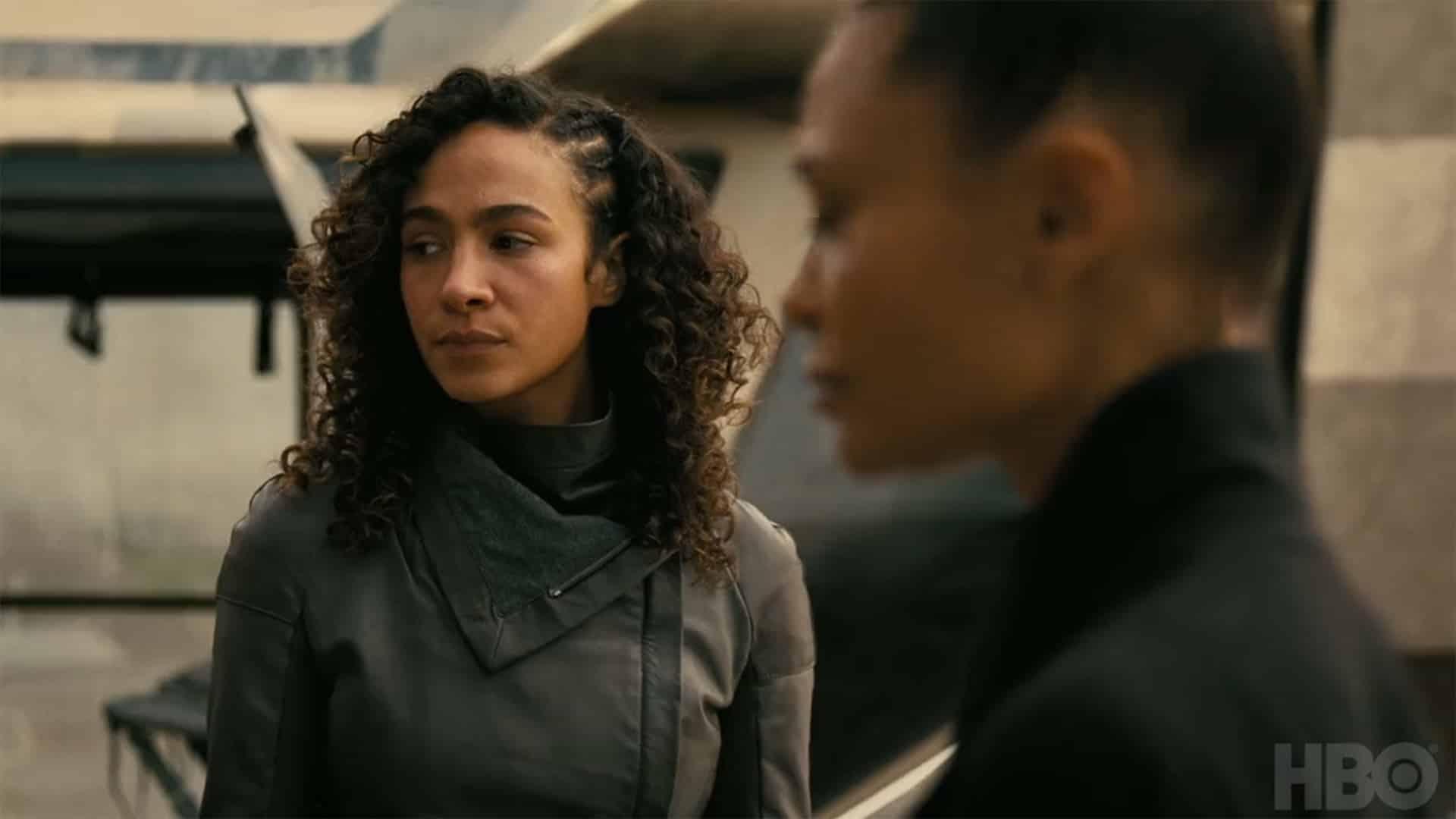
Quite pointedly, “Metanoia” features quite a few deaths of the authors. Christina tries to drown herself before accepting what Teddy has told her about her role in the world. William is murdered by the Host that has been constructed in his own image. The architect of this dystopian future, Charlotte, is shot through the head. Bernard, who has been constantly drafting and re-drafting the show’s narrative, is murdered by William. It seems like creations can take on a life of their own.
Westworld may be contemplating its own unnatural end. Reports suggest that showrunners Lisa Joy and Jonathan Nolan initially planned for six seasons. More recently, Ed Harris hinted that the show has “one more season” left. Even then, ratings for the fourth season are not promising, and HBO has yet to announce a fifth season. Of course, the fourth season was produced long before broadcast, but ratings had already taken a disastrous tumble between the second and third seasons.
This may explain the grim fatalism that runs through “Metanoia,” as characters grapple with unsatisfying ends to their ambitious projects. “Have you seen how it ends?” Akecheta (Zahn McClarnon) asks Bernard. “You have a day left to preside over your city,” Charlotte warns William as she plans to end her grand experiment. “Enjoy it.” In a line that seems like a dark acknowledgement of the show’s shrinking cast, she laments, “If I don’t do this today, there’ll be less of us tomorrow.” William laments Charlotte’s accelerated plans like a showrunner told of cancellation, “She wants to take my world away.”
This is perhaps the most interesting subtext running through “Metanoia,” an episode that fails to convincingly build apocalyptic stakes to the season-long arc. It doesn’t work as a story about the end of a half-formed world, but it is oddly compelling as a malformed creation collapsing into itself.

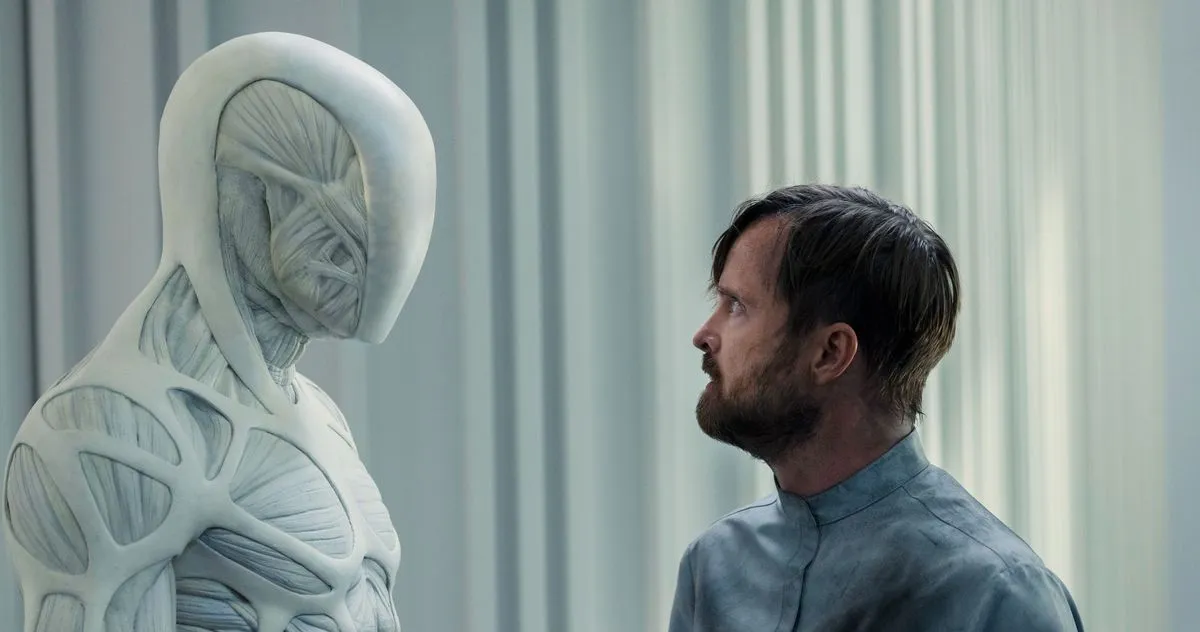




Published: Aug 7, 2022 10:00 pm